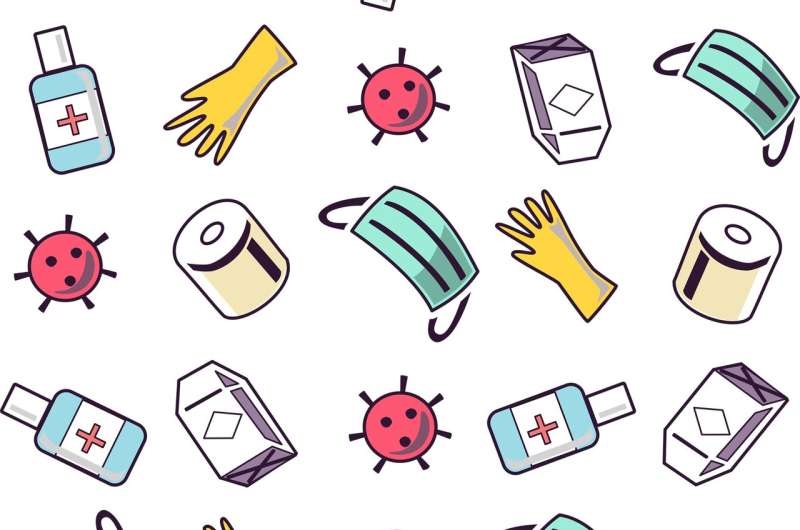Ranking the best ways to limit COVID spread

Less-intrusive, non-pharmaceutical interventions to limit the spread of COVID-19, such as effective communication strategies and government support, may be just as effective in slowing transmission as more intrusive solutions, such as lockdowns, according to an assessment of interventions taken in a variety of countries and regions between March and April 2020. The assessment of non-pharmaceutical interventions (NPIs), presented in Nature Human Behavior, also found that the most effective NPIs were the cancelation of small gatherings, closure of educational establishments, border restrictions, individual movement restrictions, national lockdowns and increasing the supply of personal protective equipment.
In the absence of an effective vaccine to treat SARS-CoV-2, NPIs are being used by governments to mitigate the spread of the virus. As these interventions have economic and social impacts, understanding which NPIs are the most effective would allow stakeholders to target interventions to reduce the transmission rate.
Peter Klimek and colleagues used four computational methods to model the effect of 6,068 NPIs, implemented between March and April 2020 in 79 countries or regions, to assess their impact on mitigating the spread of SARS-CoV-2 and reducing the reproduction rate. They then validated these results using two external databases of 42,151 NPIs from 226 countries. All four methods identified the same NPIs (the cancelation of small gatherings, closure of educational establishments, border restrictions, individual movement restrictions, national lockdowns and increasing the supply of personal protective equipment) as being most effective. Additionally, the authors also identified that less-disruptive NPIs, including governmental support to vulnerable populations, food assistance programs and communication strategies on social distancing and self-isolation, can be as effective in reducing the rate of transmission as more drastic and intrusive options, such as lockdowns. Among the least effective NPIs were environmental measures, such as the cleaning of shared surfaces. The authors found that the effectiveness of NPIs in individual countries was affected by the speed of implementation, how many measures had already been implemented, and socioeconomic, cultural and political factors.
The authors highlight that there is no individual NPI that will prevent the spread of COVID-19 and that a combination of interventions tailored to an individual country and its epidemic is needed. They caution that their data is time-limited, and further research is needed to assess the impact of the NPIs over a longer period when countries were easing and/or re-implementing restrictions.
More information: Nils Haug et al. Ranking the effectiveness of worldwide COVID-19 government interventions, Nature Human Behavior (2020). DOI: 10.1038/s41562-020-01009-0





















